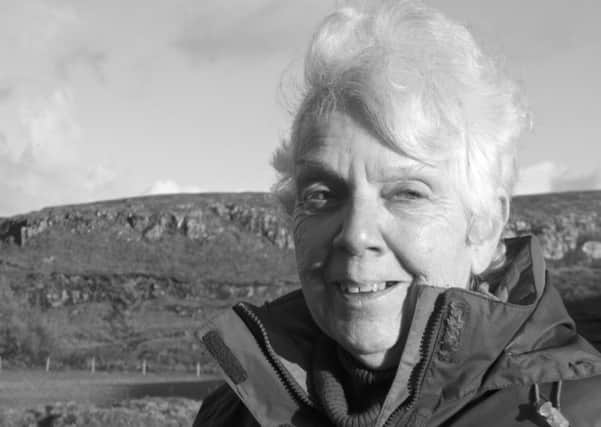Book review: The Burning Glass: The Life of Naomi Mitchison, by Jenni Calder


She was born into privilege, a Haldane of Cloan, into academia, for her father and much-loved brother Jack were distinguished scientists. She was a socialist with, between the wars, a sympathy for communism, a free spirit with a sense of duty and obligation, a laird who worked her own land, author of almost as many books as she lived years, a loving wife to Labour MP Dick Mitchison, but one who enjoyed an open marriage, a county councillor in Argyll who worked devotedly for the Highlands, a tribal mother in Botswana for whose people she worked with equal devotion, a democrat and an aristocrat who always dressed for dinner.
Yeats wrote of the need to choose between perfection of the life and of the work, though he may not have made that choice himself. Naomi Mitchison certainly didn’t. She wrote incessantly and inevitably most of what she wrote was ephemeral. This is of course the common lot of writers, not only prolific ones. She made her name in the 20s as a historical novelist. I first read The Conquered when I was 16. The story of Caesar’s conquest of Gaul told, as the title indicates, from the Gallic side, it made a great impression on me. I still find it remarkable. A good historical novel has the chance of outlasting contemporary ones; it doesn’t date. The Conquered hasn’t. It’s in the Conan Doyle/Alfred Duggan class. The Bull Calves, set in 18th century Scotland with a Jacobite theme, is her masterpiece. Mitchison, Jenni Calder writes, “had always poured herself into her novels and this is perhaps more true of The Bull Calves than of previous novels … [it] was also a statement of her commitment to Scotland.”
Advertisement
Hide AdThis is fair comment, but one of the few criticisms of this fascinating biography is that while Calder tells us much about the writing of the novel, she says little about its substance and offers no critical assessment of it. For that you have to go to excellent studies by Isobel Murray and Douglas Gifford, both of whom demonstrate that it is one of the greatest Scottish novels of the 20th century, a novel worthily in the tradition of Scott and Stevenson. Mitchison came closer to “perfection of the work” in these two novels than in anything else she wrote.
This is a warm and sympathetic biography of a full and wonderfully varied life, a modest revision of one which Calder wrote while its subject was still alive, not one in which she then felt constrained because her admiration and regard for Mitchison was sincere. She quotes from a letter written to Eric Linklater: “If one hadn’t felt secure one wouldn’t have wanted and couldn’t have sought adventure” – a recognition of her good fortune. That letter is undated but written when she had at least 30 more years to live. Calder adds: “She had not only the security of class and family, in a country where both still counted for a good deal, but also a moral and intellectual security.” She had no doubt that she knew what was good and what was right.
“Naomi,” she writes, “saw herself as an innovator, adventuring beyond accepted social and intellectual frontiers.” This was at the heart of her committed feminism. “Yet she valued family continuity, she valued a society founded on custom… Did she contradict herself? Yes, of course. Consistency, like cautiousness, inhibits adventure. She did not like being cautious.”
This is a very good and understanding biography, continuously interesting. Read it and you will learn much about Scotland, much about the changing manners and morals of the 20th century; it’s an educational book. Did Mitchison spread herself too thinly? If you consider her primarily as a writer, the answer must be “yes”. On the other hand, not many write novels as good as her two best ones, and not many who write novels of such quality also lead such a varied and for the most part useful life. - Allan Massie
The Burning Glass: The Life of Naomi Mitchison, by Jenni Calder, Sandstone, 352pp, £9.99